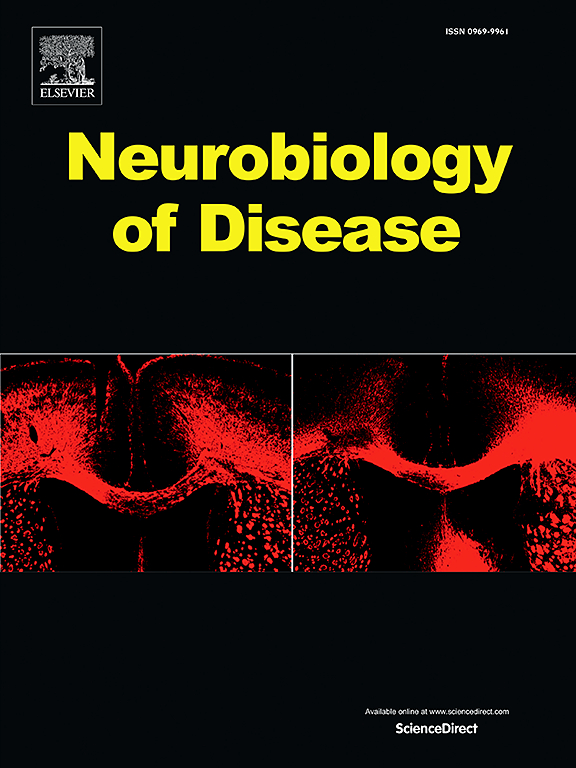Sex-biased zinc responses modulate ribosomal protein expression, protein synthesis and social defects in Cttnbp2 mutant mice
IF 5.1
2区 医学
Q1 NEUROSCIENCES
引用次数: 0
Abstract
Autism spectrum disorders (ASD) are neurodevelopmental conditions influenced by genetic mutations, dietary factors, and sex-specific mechanisms, yet the interplay of these factors remains elusive. Here, we investigate the sex-biased responses of mutant mice carrying an ASD-associated mutation in Cttnbp2 to dietary zinc supplementation using behavioral assays, proteomic and bioinformatic analyses, and puromycin pulse labeling to assess protein synthesis. Our results demonstrate that zinc supplementation enhances ribosomal protein expression and protein synthesis and increases the density and size of dendritic spines in male Cttnbp2 mutant mice, alleviating male-biased social deficits. Analyses of neuronal cultures further revealed that neurons, not astrocytes, respond to zinc to enhance protein synthesis. In contrast, female Cttnbp2 mutants exhibit resilience to differential zinc intake, even under zinc deprivation. Elevated mTOR phosphorylation and increased protein levels of translational initiation factors in female brains may provide a protective mechanism, reducing their sensitivity to zinc deficiency. Cttnbp2 mutations heighten male vulnerability to zinc deprivation, impairing social behaviors. These findings highlight zinc-regulated ribosomal protein expression and protein synthesis as critical mediators of sex-specific ASD phenotypes, offering new insights into dietary interventions.

性别偏锌反应调节Cttnbp2突变小鼠核糖体蛋白表达、蛋白合成和社会缺陷
自闭症谱系障碍(ASD)是一种受基因突变、饮食因素和性别特异性机制影响的神经发育疾病,但这些因素之间的相互作用尚不明确。在这里,我们研究了携带asd相关突变Cttnbp2的突变小鼠对膳食锌补充的性别偏见反应,使用行为分析、蛋白质组学和生物信息学分析以及嘌呤霉素脉冲标记来评估蛋白质合成。我们的研究结果表明,锌补充剂增强了Cttnbp2雄性突变小鼠核糖体蛋白的表达和蛋白质合成,增加了树突棘的密度和大小,减轻了雄性偏社会性缺陷。对神经元培养物的分析进一步表明,锌对神经元而非星形胶质细胞有促进蛋白质合成的反应。相比之下,雌性Cttnbp2突变体对不同的锌摄入量表现出弹性,即使在锌被剥夺的情况下。女性大脑中mTOR磷酸化升高和翻译起始因子蛋白水平升高可能提供了一种保护机制,降低了她们对缺锌的敏感性。Cttnbp2突变增加了男性对锌缺乏的脆弱性,损害了社会行为。这些发现强调了锌调节的核糖体蛋白表达和蛋白质合成是性别特异性ASD表型的关键介质,为饮食干预提供了新的见解。
本文章由计算机程序翻译,如有差异,请以英文原文为准。
求助全文
约1分钟内获得全文
求助全文
来源期刊

Neurobiology of Disease
医学-神经科学
CiteScore
11.20
自引率
3.30%
发文量
270
审稿时长
76 days
期刊介绍:
Neurobiology of Disease is a major international journal at the interface between basic and clinical neuroscience. The journal provides a forum for the publication of top quality research papers on: molecular and cellular definitions of disease mechanisms, the neural systems and underpinning behavioral disorders, the genetics of inherited neurological and psychiatric diseases, nervous system aging, and findings relevant to the development of new therapies.
 求助内容:
求助内容: 应助结果提醒方式:
应助结果提醒方式:


